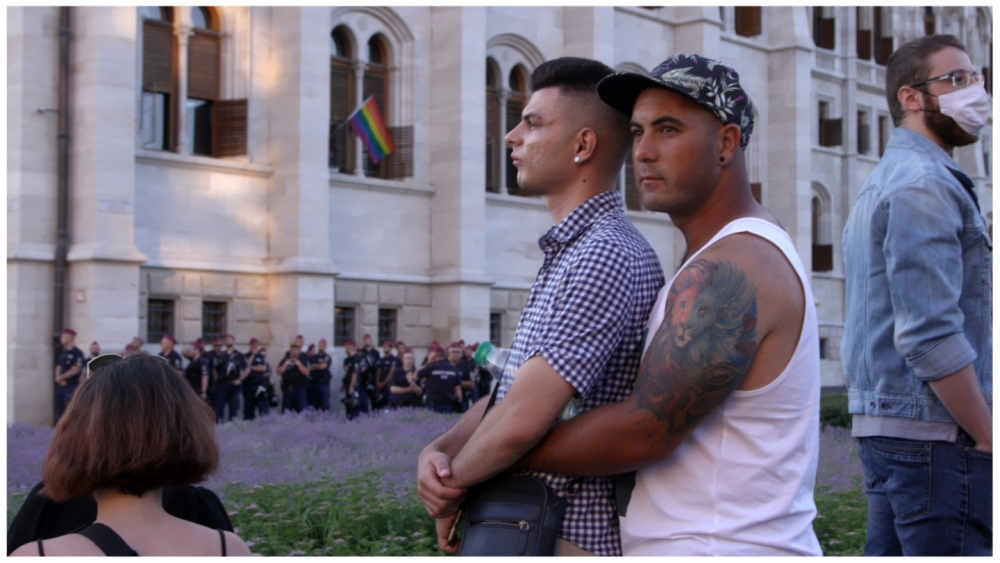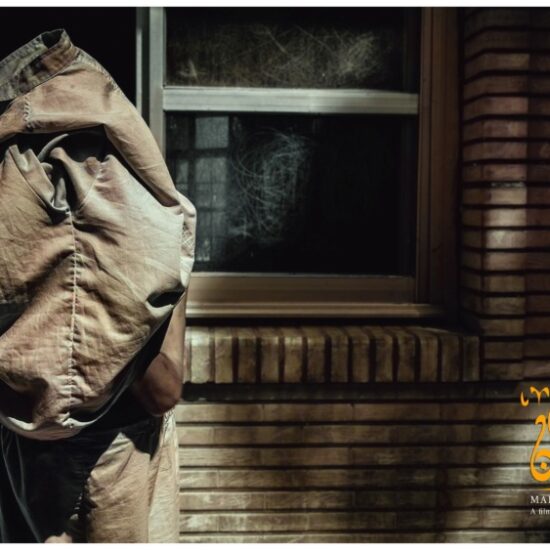
In “Narrow Path to Happiness,” Hungarian director Kata Oláh follows a young gay Romani couple from a remote village in Hungary whose dream it is to make a musical based on their lives. Just as the Hungarian government is becoming increasingly authoritarian and hostile toward LGBTQ+ people, they move to the capital. The film played in the International Competition at the Thessaloniki Documentary Film Festival this week.
The younger protagonist, Lénárd Váradi, who was 16 years old at the time, reached out to the National Film Institute in Hungary, asking for contacts and looking for a producer who would help them apply for a script development grant. Oláh, who also edited the film, says she couldn’t believe it. “I thought somebody was joking! It cannot be real! So, I said, ‘Sure, let’s meet.’ And then, we met and I fell in love with them and said: ‘You know, it doesn’t work like that; we can’t just apply for a script grant. But I will start to follow you and I will make a documentary about how you are trying to achieve your dream.”
At first, as nobody could agree on the title, the working title was “What Will the Title Be?” but Oláh says that after Lénárd and Gergo produced their song called ‘Looking for Happiness,’ she realized that it had to be part of the title “because they are searching for happiness, and it’s a very narrow path.”
The film is the first of its kind: a gay-themed intersectional documentary that bridges two worlds to come out of Hungary. “It was a very difficult and long journey to make this film because we could not get any financing here in Hungary due to the film’s sensitive topic. It was important for us to concentrate on the boys going after their dream as we didn’t want to make a kind of film about Romani people that we’ve already seen so many times.”
She adds: “So, it was finally made with a very small budget. We are a family production company. I work with my husband, Sándor Csukás, who is a well-established cinematographer in Hungary. He’s mainly doing fiction, but we are both passionate about documentaries, so whenever he has time, we work together. My daughter is my producer and I have a son who also helped a lot in the production of this film. So, literally, the whole filming was done by us, the family, which I think was also very important for building the trust with our protagonists. In terms of financing, we received some help here and there, and then Marc Smolowitz, an American independent producer, joined us and we raised some money in the U.S. and that’s how we could compete the film.”
The two protagonists represent populations in Hungary who are actively persecuted due to their sexuality, race or ethnicity. “I feel that, as a director, it is part of my responsibility to bring this film to these communities and open up conversations about topics that the film touches and that are often taboo. Of course, always with the support of great professionals,” she tells Variety.
Oláh hopes that by showing the film to Hungarian audiences, the film will have an impact on the government and society in Hungary, where same sex marriage is constitutionally forbidden and same sex couples are prevented from adopting, especially because in June 2021, a bill was submitted to Parliament to ban all products, advertising, and media featuring gay or transgender people from those under the age of 18, thus removing the appearance of LGBTQ+ people in public service advertisements or school programs.
“We are working closely with a Roma foundation and our common goal is to put together an impact campaign and distribute the film in Hungary, as our intention is to show it and talk about it openly.”
The producers are Borbála Csukás for Makabor Studio and Smolowitz for 13th Gen.













